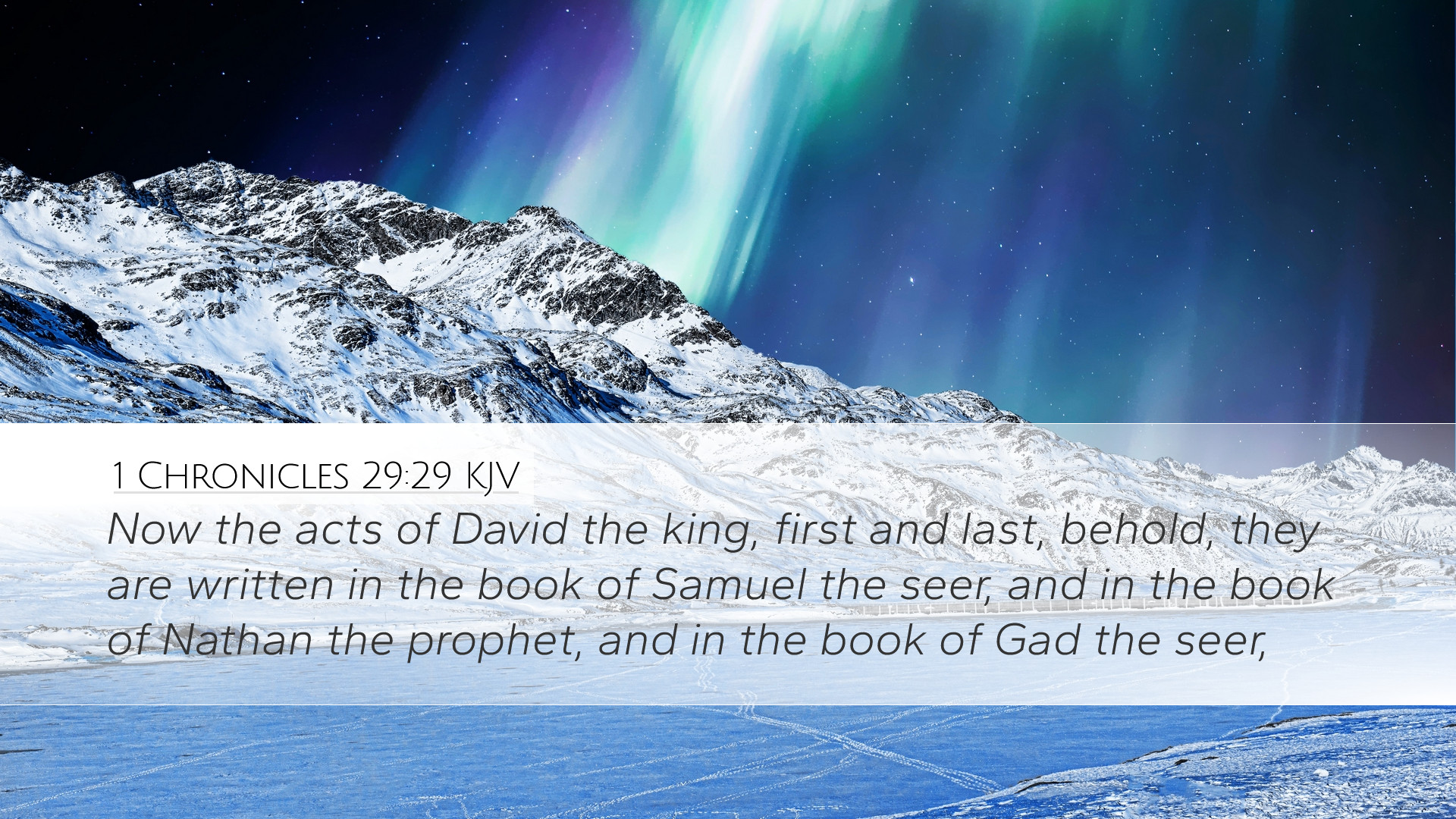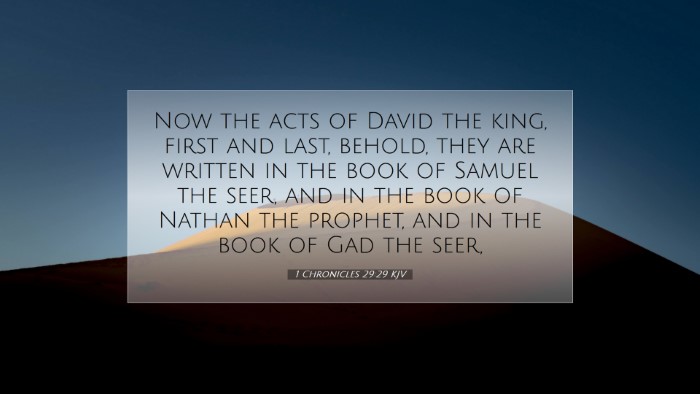Commentary on 1 Chronicles 29:29
Verse: "Now the acts of David the king, first and last, behold, they are written in the book of Samuel the seer, and in the book of Nathan the prophet, and in the book of Gad the seer." (1 Chronicles 29:29)
Introduction
This verse concludes a significant section in the Chronicles, affirming the historical accounts of King David's life and reign. It underscores the role of prophetic figures in preserving the history of Israel and contributes to the theological reflection on divine authorship through human agents.
Insights from Commentaries
Matthew Henry's Commentary
Matthew Henry highlights the importance of David's reign in the context of Israel's history. He notes that the "acts of David" are comprehensive and not limited to significant events only; they include both his accomplishments and failures. Henry emphasizes that David was noted for his military prowess, administrative skills, and spiritual leadership. The reference to the works of the "seer" indicates a divine endorsement of the recorded acts, implying that history is a product of both divine and prophetic oversight.
Albert Barnes' Notes on the Bible
Barnes elaborates on the recorded acts of David, emphasizing that they are documented in three significant books: those of Samuel, Nathan, and Gad. He asserts that these writings provide a fuller picture of David's complexity as a leader. These accounts help the reader understand the broader narrative of Israel's monarchy, illustrating both the triumphs and trials faced during David's kingship. It communicates the idea that David’s actions were not merely political but deeply spiritual, woven into God’s covenantal promises to Israel.
Adam Clarke's Commentary
Clarke provides insight into the various authors mentioned, discussing their roles in the prophetic tradition. He remarks on the multifaceted relationship between these seers and David, suggesting that their writings served not only as historical chronicles but also as theological reflections on God’s covenant with His people. Clarke also emphasizes the inclusivity of prophetic voices, each contributing unique perspectives to the historical narrative, which reinforces the educational value for future generations in understanding God's dealings with Israel.
Thematic Reflections
The passage serves several important themes:
- The Value of Historical Record: Chronicles presents a call to remember and honor the past. Each generation of believers is instructed to learn from the history of their spiritual predecessors.
- The Role of Prophecy: The chronicler underscores the significance of prophetic insight in documenting history. Prophets serve as mediators, providing God’s perspective on events, thus establishing a narrative that highlights divine sovereignty.
- The Legacy of Leadership: David's life is portrayed as a complex tapestry of faith and failure, offering profound lessons on leadership, repentance, and the importance of pursuing God's heart.
Practical Applications
For pastors and theologians, this verse serves as a reminder that:
- Historical Awareness: Understanding the context and history of biblical figures enriches the teaching and preaching of Scripture.
- Prophetic Voice: Emphasizing the need for contemporary prophets—those who faithfully proclaim God’s truth in the midst of societal challenges.
- Personal Reflection: Encouraging leaders to evaluate their own legacies, ensuring their lives are aligned with God’s will and purpose as David’s was, despite his shortcomings.
Conclusion
1 Chronicles 29:29 encapsulates the essence of King David's impact on Israel and the importance of divine and prophetic validation in Scripture. As believers study these records, they are invited to reflect on their relationship with God, the importance of leadership rooted in faith, and the enduring legacy of biblical history in guiding present and future generations.


